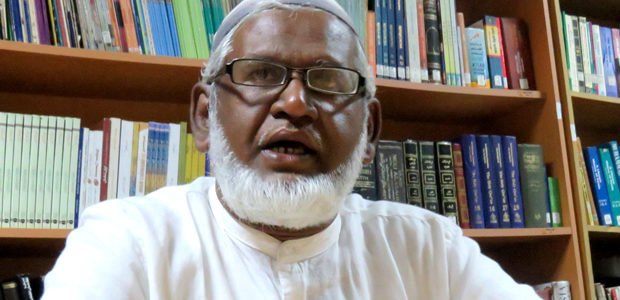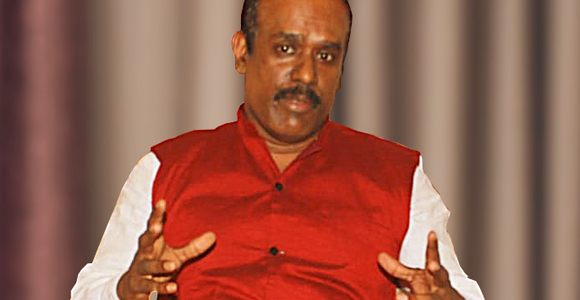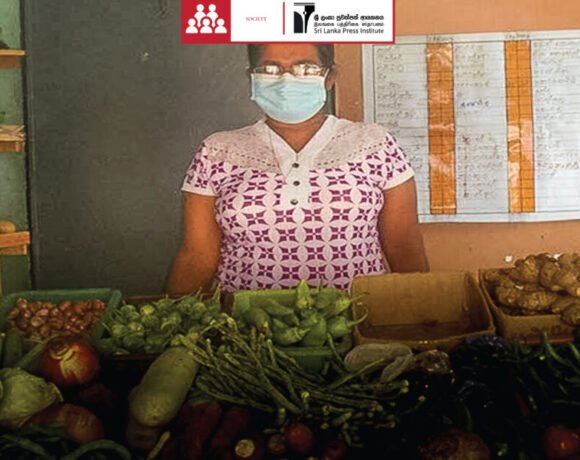
In Conversation with Moulavi Lafir Madani The Responsibility of Muslims to Defeat Extremism
MELANI MANEL PERERA
The solution to extremism cannot be achieved through more extremism. It is important to understand than give criticism, live in doubt, and plot revenge. This is the Catamaran’s exclusive interview with Moulavi Lafir Madani.
The solution to extremism cannot be achieved through more extremism. It is important to understand than give criticism, live in doubt, and plot revenge. Moulavi Lafir Madani (58), the President of the Hashimi Foundation, and the Inter-Religious Peace Foundation, says, “It is imperative for all to work together to defeat the extremist threats.”
THE CATAMARAN – Just a few months after the Easter Sunday Attacks, what are your thoughts on what took place?
We are still in a state of shock even though the tragedy took place few months ago. It may take a long time for that shock to go away. I believe there is a huge responsibility placed on the shoulders of Muslims after this tragedy. The fire of extremism can never be extinguished through similar extremism. We must all fight together to get rid of this extremism as Rev. Cardinal says.
THE CATAMARAN – This attack was carried out with the intention of hurting the general public, particularly the Christians. What is your collective view on this?
Sa’adi, a Persian poet, said that mankind is one body. If one part is injured, other parts too feel the pain. When we meet a Christian, we feel pain. While there is no connection between these attacks and the vast community of Muslims, it cannot be denied that those who committed the crime are part of our community. The disrespect, contempt and suspicion of society towards us are justified. We cannot escape this responsibility by just saying that we have nothing to do with the assailants.
THE CATAMARAN – What do you think of the Muslim-Christian relationship now?
From a theological point of view, we worship the same God. The Qur’an makes it very clear. There are many passages in the Qur’an that mention Abraham, Jacob, Joseph, Moses and Jesus. Muslims should follow these prophets, and those who don’t do so are not perfect Muslims; they follow only a part of the Islamic faith. Despite few differences, we both believe in a religion that God has introduced. We have never had any dispute with Christians. There exists the same bond between the majority of Muslims and Christians even today. We must do our best to protect this.
THE CATAMARAN – What should Muslims do to avoid extremism?
We need to re-evaluate ourselves. We have to find out where we went wrong. Otherwise, it would not make any sense. I have been working together with a group for 20 years with the objective of creating peace among people when bombs were exploding in places like Jaffna, Batticaloa, Colombo and Hambantota. But I feel we’re not entirely honest. We have a lot to understand about one another and not just find fault with the others. Many among us have a “We are better than you” and “We are superior to them” mentality. This thinking is awful. The sense of humanity, the peace and the brotherhood that Islam speaks of should be revisited again and again. It is our duty today to ensure that our youth do not become pawns in the hands of ISIS or similar groups, and to prevent them from falling prey to evil propaganda. Our primary task should be to prevent Muslim youth from attending discourse of radical elements.
THE CATAMARAN – Do Muslims think of creating new opportunities for harmony?
The Muslim community is still in shock. Making a suicide bomber is not easy. It is not easy to fight against it either. It is not possible to say that Muslims can eliminate extremism overnight. We have to admit that extremist mentality still exists in some Muslims. We must accept that reality and move on. We have to prepare ourselves for deep self-evaluation in order to reinterpret and understanding Islam. Although there has been some discussion among individual intellectuals and groups, this has not reached the majority. Muslims should convey this message to all the people in the country. Allama Iqbal, (1877-1938) an Indian philosopher, poet and reformer, wrote and published a book in the 30-40s titled “Reforming the Religious Thought in Islam”. I find it relevant even today to reconcile and interpret the Lankan Muslim context. The book is of great relevance to the Muslim community to understand the role of society in the present age as it was then.
This article was originally published on the catamaran.com







